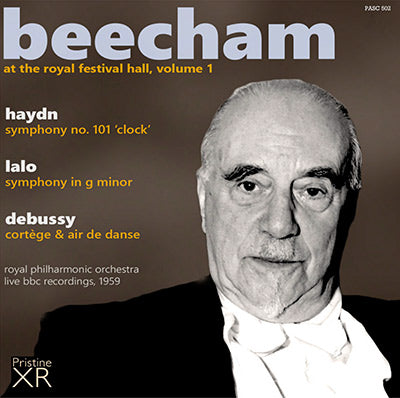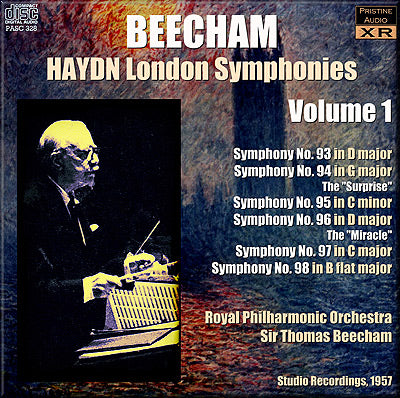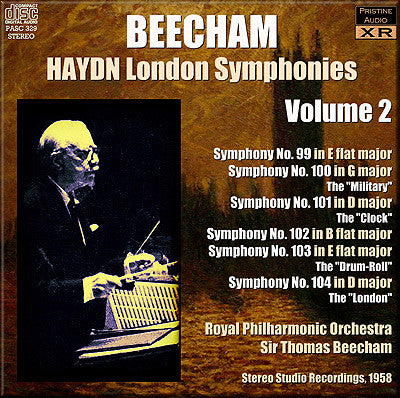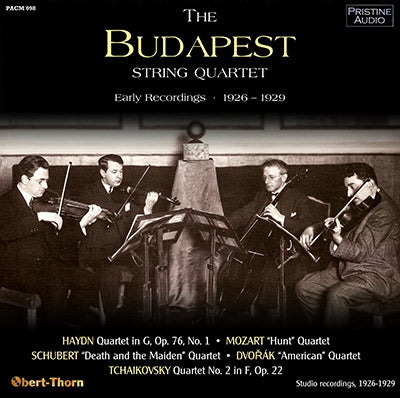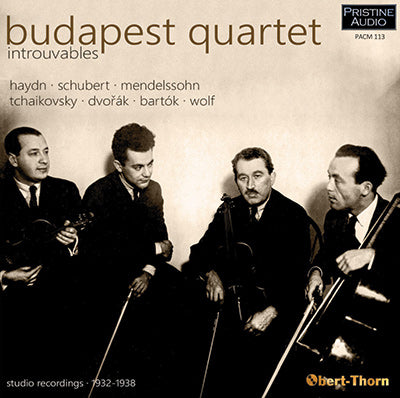Haydn
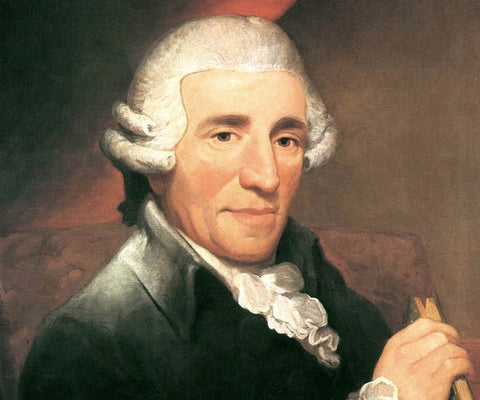
(Franz) Joseph Haydn (31 March 1732 – 31 May 1809) was an Austrian composer of the Classical period. He was instrumental in the development of chamber music such as the piano trio and his contributions to musical form have earned him the epithets "Father of the Symphony" and "Father of the String Quartet".
Haydn spent much of his career as a court musician for the wealthy Esterházy family at their remote estate. Until the later part of his life, this isolated him from other composers and trends in music so that he was, as he put it, "forced to become original". Yet his music circulated widely and for much of his career he was the most celebrated composer in Europe.
He was a friend and mentor of Mozart, a teacher of Beethoven, and the older brother of composer Michael Haydn.
A central characteristic of Haydn's music is the development of larger structures out of very short, simple musical motifs, often derived from standard accompanying figures. The music is often quite formally concentrated, and the important musical events of a movement can unfold rather quickly.
Haydn's work was central to the development of what came to be called sonata form. His practice, however, differed in some ways from that of Mozart and Beethoven, his younger contemporaries who likewise excelled in this form of composition. Haydn was particularly fond of the so-called "monothematic exposition", in which the music that establishes the dominant key is similar or identical to the opening theme. Haydn also differs from Mozart and Beethoven in his recapitulation sections, where he often rearranges the order of themes compared to the exposition and uses extensive thematic development.
Haydn's formal inventiveness also led him to integrate the fugue into the classical style and to enrich the rondo form with more cohesive tonal logic. Haydn was also the principal exponent of the double variation form—variations on two alternating themes, which are often major- and minor-mode versions of each other.
Perhaps more than any other composer's, Haydn's music is known for its humour. The most famous example is the sudden loud chord in the slow movement of his "Surprise" symphony; Haydn's many other musical jokes include numerous false endings (e.g., in the quartets Op. 33 No. 2 and Op. 50 No. 3), and the remarkable rhythmic illusion placed in the trio section of the third movement of Op. 50 No. 1.
Much of the music was written to please and delight a prince, and its emotional tone is correspondingly upbeat. This tone also reflects, perhaps, Haydn's fundamentally healthy and well-balanced personality. Occasional minor-key works, often deadly serious in character, form striking exceptions to the general rule. Haydn's fast movements tend to be rhythmically propulsive and often impart a great sense of energy, especially in the finales. Some characteristic examples of Haydn's "rollicking" finale type are found in the "London" symphony No. 104, the string quartet Op. 50 No. 1, and the piano trio Hob XV: 27. Haydn's early slow movements are usually not too slow in tempo, relaxed, and reflective. Later on, the emotional range of the slow movements increases, notably in the deeply felt slow movements of the quartets Op. 76 Nos. 3 and 5, the Symphonies No. 98 and 102, and the piano trio Hob XV: 23. The minuets tend to have a strong downbeat and a clearly popular character. Over time, Haydn turned some of his minuets into "scherzi" which are much faster, at one beat to the bar.

Haydn
(Franz) Joseph Haydn (31 March 1732 – 31 May 1809) was an Austrian composer of the Classical period. He was instrumental in the development of chamber music such as the piano trio and his contributions to musical form have earned him the epithets "Father of the Symphony" and "Father of the String Quartet".
Haydn spent much of his career as a court musician for the wealthy Esterházy family at their remote estate. Until the later part ...
BEECHAM at the Royal Festival Hall, Volume 1: Haydn, Lalo, Debussy
BEECHAM at the Royal Festival Hall, Volume 2: Mendelssohn, Ghedini, Dvořák
BEECHAM at the Royal Festival Hall, Volume 3: Addison, Beethoven, Saint-Saëns, Gounod
Recorded live in 1959
Royal Philharmonic Orchestra
conducted by Sir Thomas Beecham
Save 5% when you purchase all three volumes together
HAYDN Symphony No. 101, "Clock"
LALO Symphony in G minor
DEBUSSY Cortège & Air de Danse from L'enfant prodigue
Recorded live in 1959
Total duration: 58:42
Royal Philharmonic Orchestra
conducted by Sir Thomas Beecham
Total duration: 2hr 35:13
Royal Philharmonic Orchestra
Sir Thomas Beecham, conductor
Total duration: 2hr 35:13
Royal Philharmonic Orchestra
Sir Thomas Beecham, conductor
HAYDN Quartet in G, Op. 76, No. 1
MOZART “Hunt” Quartet
SCHUBERT “Death and the Maiden” Quartet
DVOŘÁK “American” Quartet
TCHAIKOVSKY Quartet No. 2 in F, Op. 22
Encores by Dittersdorf, Mendelssohn and Borodin
Studio recordings, 1926-29
Total duration: 2hr 35:50
The Budapest Quartet
HAYDN Quartet No. 43
SCHUBERT Quartets Nos. 12 & 13
MENDELSSOHN Quartet No. 1
BARTÓK Quartet No. 2
DVOŘÁK Sextet
music by TCHAIKOVSKY & WOLF
Studio recording, 1932-1938
Total duration: 2hr 33:12
Budapest Quartet:
Joseph Roisman (violin I)
Alexander Schneider (violin II)
István Ipólyi or Boris Kroyt (viola)
Mischa Schneider (cello)
-
Previous
- Page 1 of 9
- Next


